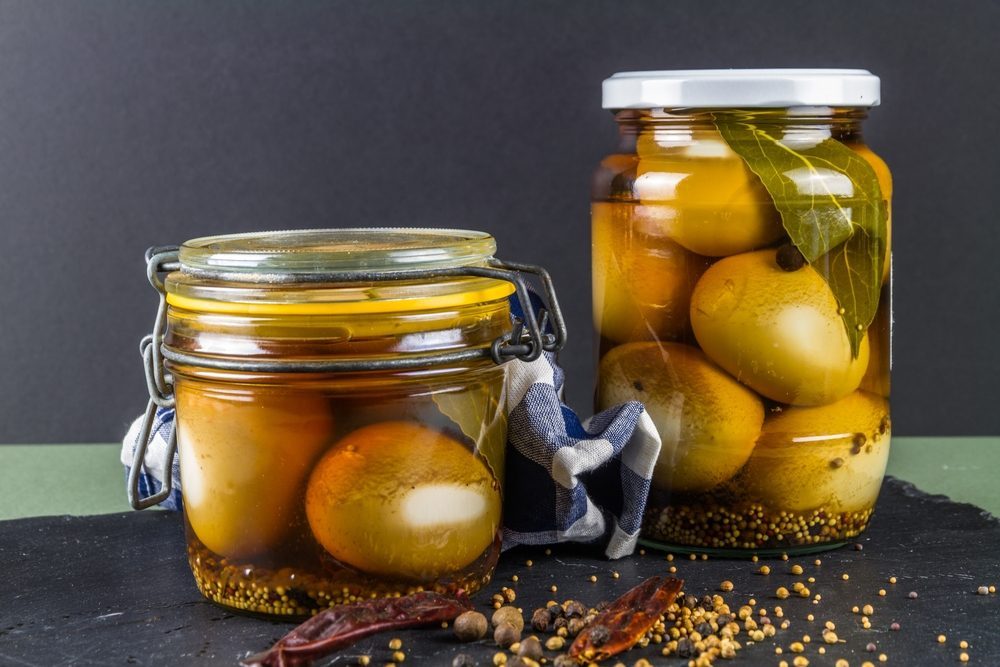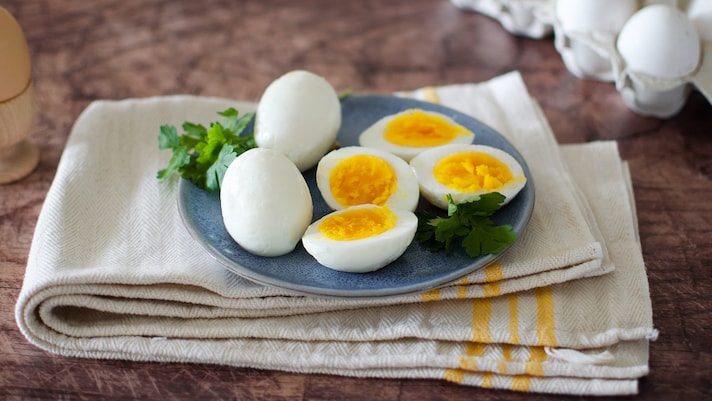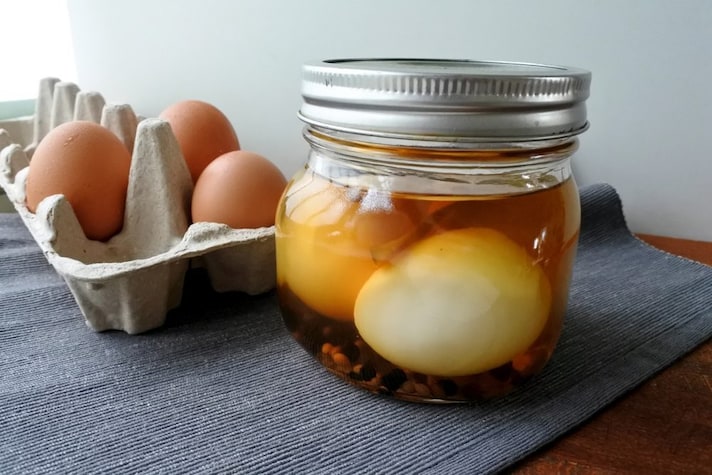How to Store Hard Boiled Eggs: Methods and Shelf Life
Hard-boiled eggs can be prepared in advance and stored: the refrigerator is the best place, but if necessary they can also be frozen, or pickled. Let's see how to do it and how long you have them available.
;Resize,width=742;)
Boiled eggs are a tasty and versatile food, so much so that they can be found both in everyday dishes, including salads and quick meals, or stuffed as an appetizer on holidays, from Christmas to Easter. Sometimes, it is true, their preparation is underestimated, especially when you want to focus on the different consistencies of the yolk. It also happens that you do not consume them immediately, but have to postpone: in this case, conservation with or without the shell comes into play, which must be done in the best way to avoid wasting food and not incurring potential food poisoning.
The advice is to make sure you compact the yolk well (so let them cook for 8-9 minutes), and then choose between the refrigerator – the most practical and safe option -, freezing, more cumbersome because you have to exclude the egg white, and finally, pickling, which turns them into a very popular specialty in Anglo-Saxon pubs and bars as a "floating" appetizer in big-size jars. Let's discover all three.
How to Store Hard Boiled Eggs in The Refrigerator
Preparing eggs in advance to better organize your day is possible. Proceed as follows: after boiling the eggs, immediately immerse them in cold water to stop the cooking process and speed up cooling, it will take about 10 minutes. Dry them well with a clean cloth or absorbent paper. At this point, place them inside an airtight container on one of the shelves of the refrigerator, avoiding the door which, by opening and closing, could cause the eggs to undergo continuous temperature variations. Do not place them near foods that have strong odors (such as cheese), as they could absorb them. Do this within two hours of cooking, because hard-boiled eggs then begin to deteriorate if kept at room temperature, with the risk of new bacterial contamination – including salmonella – which can also lead to health problems.
Have you shelled them but can't eat them anymore? The situation is more delicate and requires attention so as not to throw them away: transfer the eggs to a bowl with cold water, changing it every day, so as to maintain the humidity level and not let them dry out.

How to Freeze Hard Boiled Eggs in the Freezer
We know that whole raw eggs are one of the few foods that cannot be put in the freezer, as the shell could break due to the increase in volume inside. Is the same true for hard-boiled eggs? The answer is “neither”, because in this case too, freezing is not recommended: the critical point is the egg white, which loses its consistency after defrosting, becoming rubbery and grainy, therefore unpleasant to eat. You could do it with just the yolk: boiling a whole egg to eliminate part of it would be a waste, but if necessary, consider hard-boiling only the yolks. How? The best method to avoid breaking them is to boil them in a food bag suitable for cooking (a bit like you do with sous vide): seal everything and immerse in the pan when the water boils until they reach the right consistency (about 10-12 minutes). Let it cool and then seal in an airtight container suitable for freezing. Remember: do not throw away the leftover egg whites, because they can be stored in the fridge for up to three days and used to prepare various sweet and savory recipes.
How to Pickle Hard Boiled Eggs
Do you have a lot of eggs? Make a classic preserve, as you would with fruit and vegetables. This is a method that comes from the countryside, widespread when there were chicken coops for home consumption and the hens produced a large quantity of eggs that were stocked up: in particular, it is a very popular recipe in Anglo-Saxon countries, known as pickled eggs, to be served in pubs. So get some jars and sanitize them before using them by boiling them in water or putting them in the oven together with the lids. Harden the eggs, let them cool and remove the shell. In a saucepan, make the brine: mix the water (about 1 liter for 6-8 eggs, depending on the size), the vinegar (350 g, so as to make a ratio of about 3:1, but you can also opt for half and half), half a teaspoon of salt and spices (peppercorns, cardamom, mustard seeds, cloves, chili pepper), a few bay leaves and a clove of garlic to taste for flavor. Bring everything to the boil, then reduce the heat and let simmer for about 5-10 minutes. Remove from the heat. Transfer the peeled eggs to the jars and cover them completely. Close well and turn upside down until completely cooled to create the vacuum. Store in the refrigerator and let rest for 3 days to a week before consuming them.

How Long do Hard Boiled Eggs Keep?
To recap: we have seen the methods of conservation, but not the times. Below, here is how long they last depending on the option chosen.
- In the refrigerator, hard-boiled eggs with the shell will keep for about a week (5 to 7 days) , while shelled eggs will last 1-2 days. Always check that they are still edible by looking at their color – which should be the common white of the egg white, while the yolk, if by chance it appears greenish, could only be because it was cooked for a long time – and by their smell: if you smell the typical hint of sulfur, it is a sign that they have gone bad.
- In the freezer, stored egg yolks last about 3 months: defrost them in the refrigerator and then check by their appearance and smell that they are still good. Use them immediately, they will be good especially in sauces or doughs like that of ovis mollis biscuits.
- Hard-boiled eggs in vinegar will keep for 2 months. Once the jar is opened, it is best to eat the eggs within a few days: their consistency will be naturally rubbery and their taste will be the pungent taste of vinegar, which varies in nuances depending on the spices and aromas of the marinade, becoming stronger as the weeks pass.
;Resize,width=767;)
;Resize,width=712;)
;Resize,width=712;)

